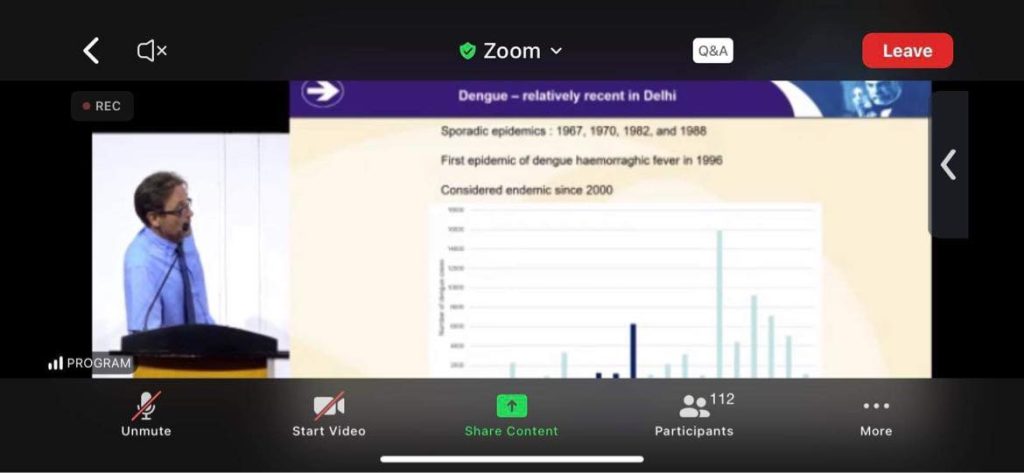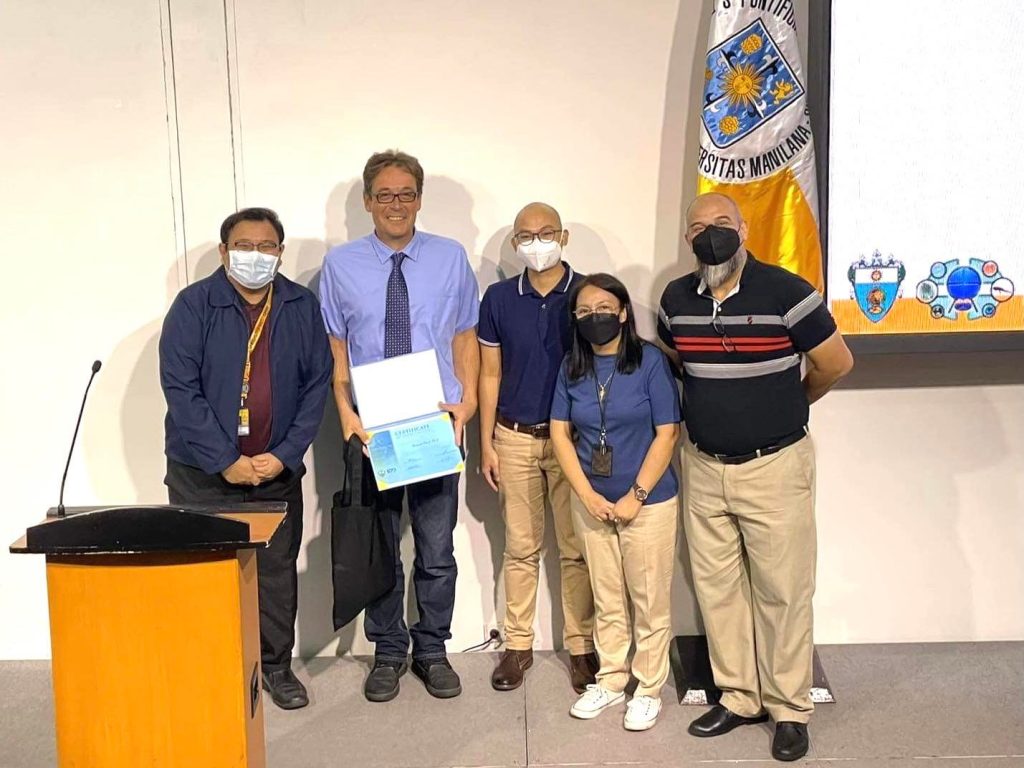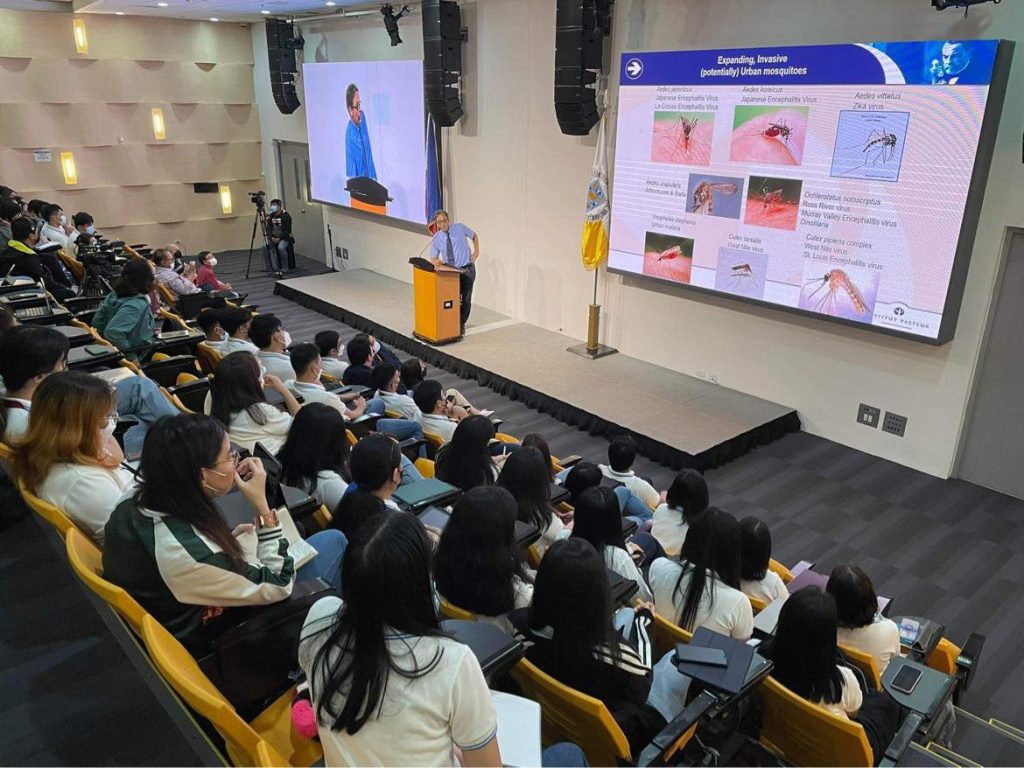The Department of Biological Sciences of the UST College of Science, in cooperation with the UST Graduate School Natural Sciences Cluster, recently hosted a hy-flex lecture by Prof. Richard Paul, Ph.D., of the Ecology and Emergence of Arthropod-borne Pathogens Unit, Department of Global Health, Institut Pasteur, Paris, France, on September 21, 2022, at the Central Laboratory Auditorium.



Paul’s talk, “Disentangling risk for mosquito-borne infections in the urban environment,” focused on the ecology of mosquito-borne diseases such as Dengue, Zika, and Japanese encephalitis, as a result of the interplay of various environmental factors present in the urban environments of cities and large towns. The unique physical characteristics of urban environments, including increased mean temperatures (as a result of concrete structures and resultant heat-island effects), constant availability of water, and pockets of green spaces, provide suitable microhabitats for the entry of mosquitoes and allow for the spread of the insects and their associated diseases into areas where they are not usually found.
His study stresses the importance in understanding the urban ecology of mosquitoes, since effective control of these factors will provide better, cheaper and more effective control of the spread of mosquito-borne diseases compared to standard control methodologies such as fogging which are time consuming, expensive, and provide only short-term effects.
The hy-flex lecture was attended by administrators, faculty and students from the Department of Biological Sciences both onsite and online, marking the first true Hy-flex lecture in the College of Science and is a testament to the Department’s commitment to providing opportunities for students to learn and appreciate current trends in science in the new normal.
The welcome and closing remarks were delivered by the Dean of the College of Science Prof. Rey Donne S. Papa, Ph.D., and the chair of the Department of Biological Sciences Assoc. Prof. Richard Thomas B. Pavia, Jr., Ph.D., respectively.




